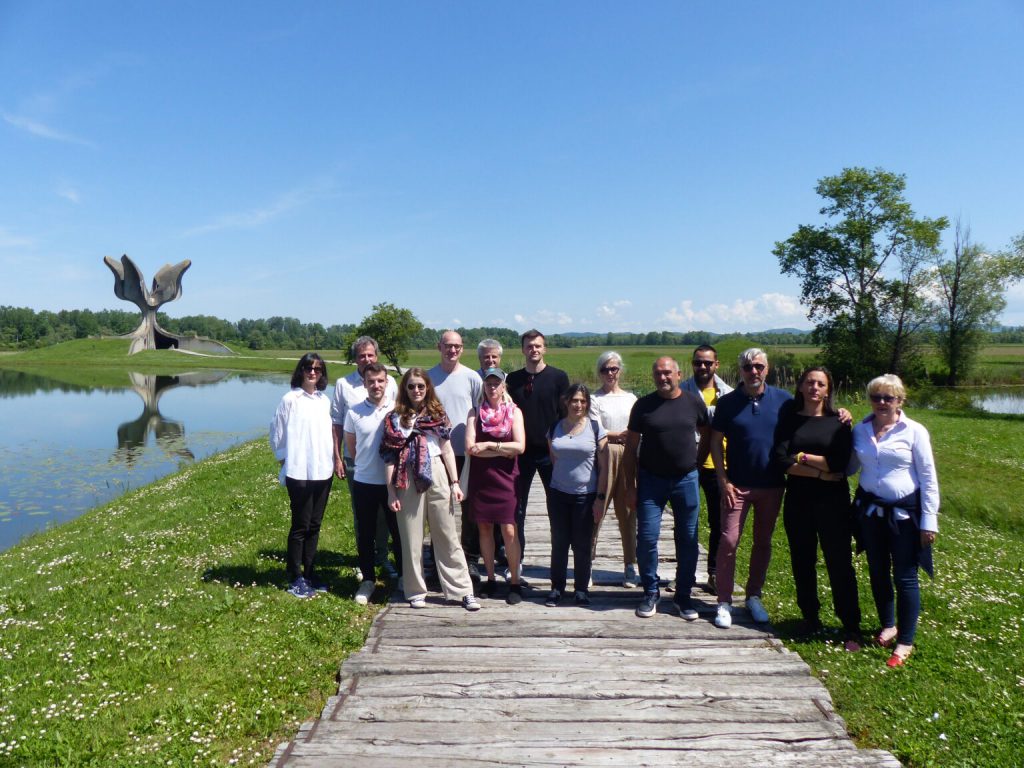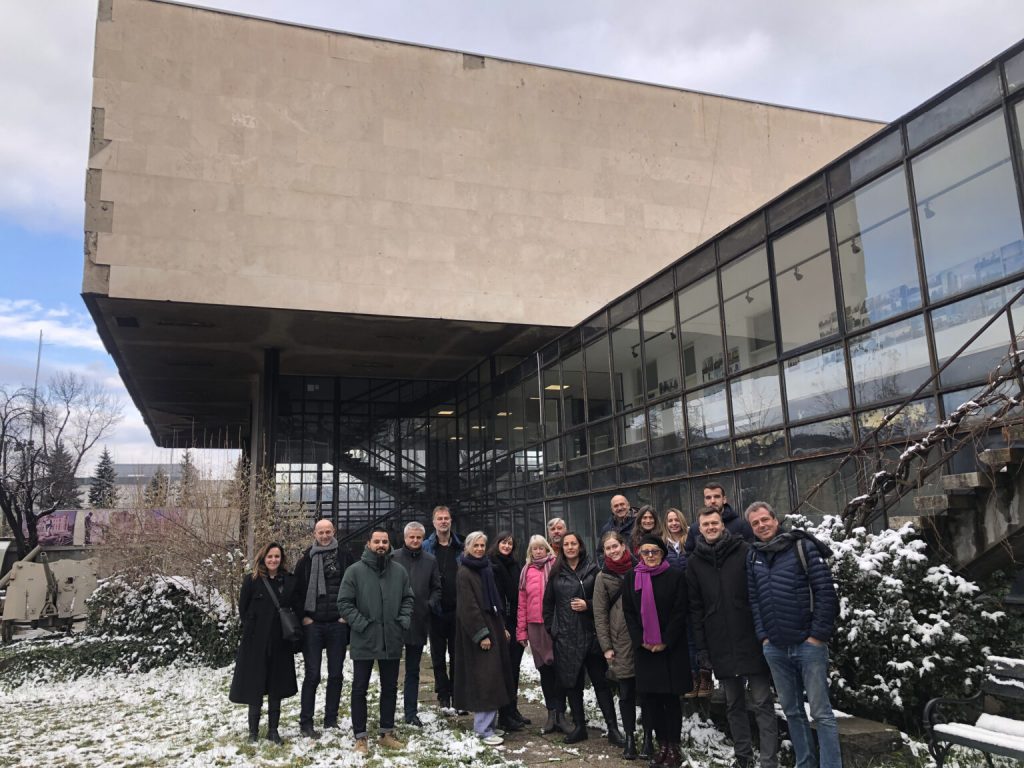From the beginning, we had foreseen to involve a group of historians and curators in our work, not only sporadically, but throughout the entire project. On the one hand, to discuss the content of the project with the project team and to contribute concretely to the activities and planned results. On the other hand, also to give them the opportunity to make new international contacts and to work with and learn from each other.
At this workshop in Sarajevo, the 12 experts from Bosnia and Herzegovina, Croatia, France and Germany came together for the first time. “The beginning of a common journey where we want to create and build something together, in a process of sharing knowledge, experiences and questions”: this is how we defined the project in our introduction.
Getting to know each other and working on the topic went hand in hand during these two days, during which, for example, the participants from Bosnia and Herzegovina, Croatia, France and Germany presented to the others basic information about the forms of resistance in their respective countries during the Second World War and also about the changes in the memorialisation of this resistance from 1945 until today.
Furthermore, we discussed various questions related to the topic of resistance to Nazism and Nazi occupation (e.g. different approaches of defining resistance), about aspects we would like to emphasize (e.g. transnational aspects of resistance), and started to work together on the planned conferences and the 3 outcomes (publication / digital platform / exhibition).
As we will be holding workshops in all four countries, each workshop is also an opportunity to learn more about the partner organisation in the city and the historical context of the place. In Sarajevo, we explored in more detail the History Museum of Bosnia and Herzegovina, founded in 1945 as a museum about World War II and the partisan fight, and the Vraca Memorial Park, opened in 1981 to honour the partisans and civilians killed in occupied Sarajevo between 1941 and 1945.
It was also important to agree on common working rules for cooperation between the project team and the expert team and within the latter, and to clarify practical issues.
The reactions to this first workshop full of stimulating discussions and discoveries were very positive and encouraging – we are looking forward to the next steps!



